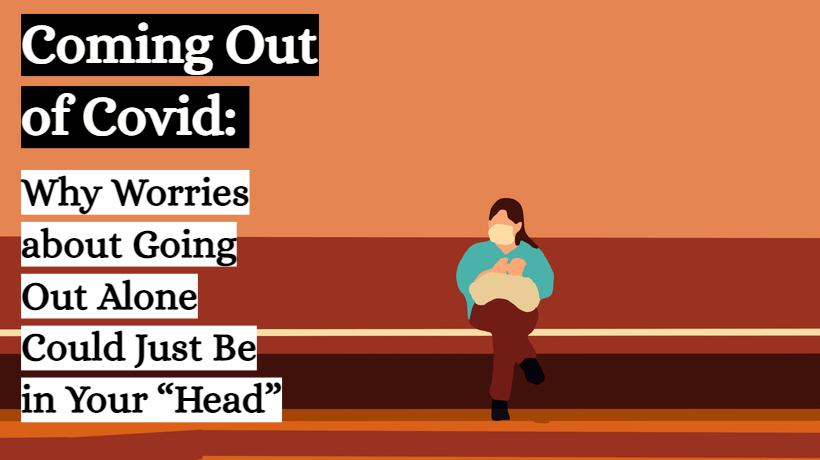As society begins to reopen after a long year of quarantine, vaccinated people are eager to go out and socialize again. As vaccination races continue to climb in different areas of the country, people are suddenly flooding the bars, restaurants, movie theaters, shopping centers, and other public places that stood eerily vacant for a full year due to the COVID-19 pandemic.
As we slowly begin to enter this unfamiliar post-COVID era, many people are just beginning to notice the impact a year of social distancing has had on their mental and emotional well-being. Many experts warn about the potential for increased rates of social anxiety, as people readjust to socializing in indoor and outdoor spaces.
“Dealing with long periods of isolation can increase social anxiety,” Northwestern case therapist Leslie Adams said to Heathline. “Even those who would consider themselves naturally more extroverted could be struggling.”
But going out doesn’t necessarily require socializing with other people all the time. As we begin to readjust to the world after-COVID, it’s important for us all to not only get comfortable with public spaces, but also with ourselves.
“Our re-introduction to socializing will be individual and require individual thought and preparation to get back to a comfort level that seems ‘right’ for that person,” Adams said.
In some cases, this readjustment period may be more independent. Not everyone may be moving at the same pace as we readapt to the world, so taking more opportunities to go out alone may be the solution to letting ourselves to continue to socialize and move through public spaces within our own comfort zones.
Although going out in public alone may not feel natural, research suggests that the experience can have many positive impacts on our well-being. In an article for Psychology Today, professor Bella DePaulo explains how people’s hesitation to venture out in public alone is largely based on unsubstantiated fears of how they will be perceived by others.
“Their reluctance can be explained, at least in part, by how they think they will be viewed by other people. If they are out in restaurants or movie theaters by themselves, they think others will look at them and assume they don’t have many friends,” DePaulo said.
“[In a series of market research studies,] researchers found that the reluctance to go to a movie theater alone (compared to going with friends) and the expectation of being judged harshly for doing so, was not just true of people in the U.S.,” DePaulo continued to explain.
DePaulo tested this theory with her own students, encouraging them to go out for a meal by themselves. Students found this activity to be especially difficult, largely due to their misconceptions of how they would be perceived, despite little evidence that supported this belief.
“The concern with what others might be thinking seemed to be paramount,” DePaulo said.
“The moral of this research is that we probably worry too much about doing things alone. We think we won’t enjoy the experience, but we may well enjoy it just as much as we would with friends,” she said.



